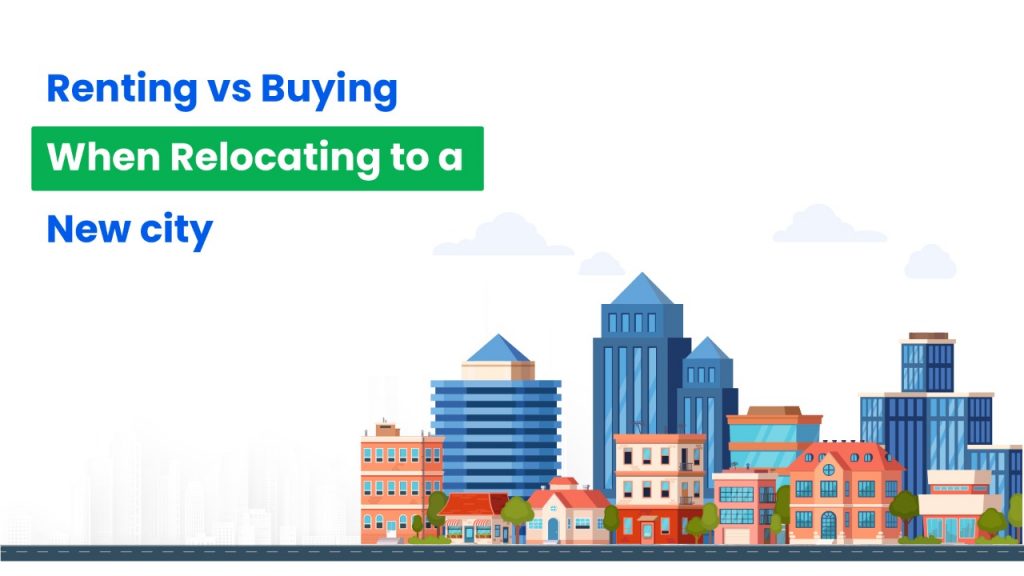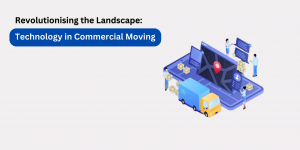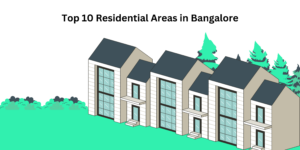Nearly 30% people in India are living in a rental house and the remaining percentage owns a property. So, Is it better to buy a house or take it on rent? What should you do in such a situation?? Well, take a minute to scroll down the article. Assess the perks and problems of both renting and buying to decide which is better for you.

Renting -perks and problems
Owning your home is a dream sold to everyone, but only a handful wish to pursue it, and even few strive to realize it. It may be a choice for some, and some might have melted down under the heat of circumstances. Compared to purchasing a property, choosing to live as a tenant does have several benefits, but it also comes with drawbacks that you should always pay attention to.
Perks of renting a House
1. No EMI’s
The first good news of not owning a home is that you don’t have to pay the lion’s share of your salary to the bank. You can pay your rent and living expenses and are free to go!! Party.
2. No lifelong financial commitments
Since you are not buying a home, you don’t have lifelong financial commitments to tie you down. All you need to rent a house are ID Proof(mandatory), two to three months of the security deposit and rent. Apart from these, you can choose to spend the money on anything you desire!!
3. Open to work opportunities
If you are in the early part of your career, then you may have to shift and move as per the job requirements. Buying a home would not be an ideal solution in this situation. Instead, you need one according to your job requirements and as far as your salary permits.
4. Freedom of choice
Without any threatening financial commitments, you can have the freedom to choose your life, career and lifestyle as per your wish. You may decide to change your career path or choose a different city to stay in; change can be anything as long as you wish.
5. No overhead costs of maintaining a home
Down payments and EMIs are just some of the headaches of buying a home. You will have to pay taxes, maintenance, overhead, and many more(even the repairs and furnishings fall entirely on you). When you rent, you won’t have any of these expenses on your bankroll.
Problems
1. No financial commitments but no returns too
Indeed, renting a home does not pose any financial commitments (apart from the rent), but it doesn’t offer any financial returns either. Your rents do not offer any returns or profits nor transform into assets in the long run.
You rent out as a living expense, not as an investment in an asset. Imagine if you spend a significant part of your life paying rent only to realize that your installments (in this case, rent) have not accumulated as any asset but only flew off as living expenses!!
2. Little returns in designing it as your home
There are few incentives in designing your rented home. You may have to give it up voluntarily, or your landlord may ask you to leave. The only effect is that all your investment in the interiors and maintenance will have no returns.
3. Uncertainty – about house and job
Though renting a home comes with freedom of choice, it can also translate into uncertainty. Your residence depends on the changes in your career and, not to mention, the whims of your landlord.
Buying – perks and problems
Buying a house is regarded as a significant milestone in societal standards. For a middle-income household, owning a home is deemed a lifetime achievement. A young person in the baby steps of their career may dream about owning a house(one fine day)and tending it to a home. A retired man may regret prioritizing mobilization and freedom over buying a house. In a sense, who doesn’t like to own things.
Perks of buying a home
1. First and foremost – The feeling of ownership
The feeling and security of owning a home are unparalleled. Whether you buy it at a young age, work for it your whole life, or even inherit it, the feeling of ownership is secure and contentment. It feels like you have a permanent abode in this fleeting time.
Though the home is not a liquid asset, it is undoubtedly a prestigious one
2. Investment in an asset
Investing in buying a home can translate into an asset in the long run. If you are a regular salary person, investing part of your income in buying a house or property can give you a home by retirement.
3. No uncertainty
Once you own a home, there comes a sense of certainty. Owning and tending to a home will determine your career and residence choices.
4. No rules, no landlords and no rent!!
Since you will be the landlord, you won’t have to follow tenant rules, pay rent or report to anyone about the home. You can design your dream home as per your wish and earn from it, too(In case you rent out a part of it!!)
Problems of buying
1. Overhead costs
Owning a home comes with its expenses. No, rent, but you will still have to pay for taxes, maintenance costs, repairs, water and electricity services, furnishings etc. When these expenses are in addition to an EMI, you can estimate your monthly expenses(Not at all less).
2. A new responsibility
Owning a house comes with its responsibilities. You will have to leave someone to take care of it wherever you go and bear all the maintenance costs. You cannot drag it if you move to a different city. You have to rent it out or sell it off(both are not again easy).
3. Heavy down payment and risky EMIs
If you are financing your own home from part payments and draining EMIs, it will consume a large part of your income. You must be financially stable and possess a contingency fund to avoid bankruptcy.
4. Not a liquid asset
Own house is not a liquid asset. Given the volatile nature, your home can appreciate or depreciate over time. Owning a house may be different from possessing a Contingency fund.
Renting vs buying -which is better??
When are you ready to buy a home??
1. When you are financially stable
When you can afford down payments, EMIs and living expenses out of your finances, hurray, you are ready to own a home.
2. When you are ready to take up the risk and responsibility.
As mentioned earlier, an asset comes with risks and responsibilities. Apart from your financial situation, responsibility is the following determinant in buying a home.
3. When you plan to settle down and not wander around
When your career choices and life goals are sorted, it’s a ripe time to decide to buy a home.
When to rent a home instead??
1. When you need choices and mobility
When you wish to explore career and residence choices that life has to offer, then renting out a home is a better choice to make.
2. When you are checking out career choices and options
Buying a house where you seldom get to live may take time and effort. Rent out a home if your job needs you to shift constantly.
3. When you don’t want to have heavy financial commitments
You are aware of the financial commitment of a home. If you do not want to lift that baggage, renting a home is a better choice.
Is there any midpoint between the two??
Yes, there is. There are some things to need when you are searching for a house(regardless of whether you wish to purchase it or rent it):
- Check out the locality and see if it suits your needs.
- Talk with the previous owner to know about the property.
- Assess all the risks and liabilities associated with it: repairs, taxes, bills, furnishings, damage etc.
The most important part of this decision is to be practical.
Sit down and assess your financial situation. Decide whether you wish to settle down or explore the choices. You may even decide to rent out a home now and buy one later on in life.
Hence, it depends on you. It would be a hard decision to make, but the outcome would be worth it( regardless of whether you choose to buy or rent)


